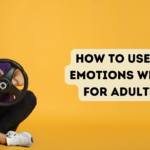Signs That You are Emotionally and Mentally exhausted and Prevention Tips: In this busy and demanding life, it is easy to ignore the toll that continuous stressors can take on our emotional and mental well-being.
Emotional and mental exhaustion is a silent struggle that many people face, usually without realizing the severity of their condition. In this article, we will talk about the signs of emotional and mental exhaustion, also we will give tips for self-care and seeking support.
Also Read:
- Tips for Becoming Mentally Strong.
- Reason Why Am I Bad at Everything. How to Overcome?
- Why Am I So Unhappy in Life?
- Why Do I Feel Mentally Unstable? What Do I Do?
- How to Deal with Emotional Wounds?
Signs That You Are Emotionally and Mentally Exhausted:
Constant Fatigue
One of the primary signs of emotional and mental exhaustion is constant fatigue that surpasses physical tiredness. If you find yourself feeling continuously drained, both physically and mentally, even after taking a whole night’s sleep, it might be a sign that your emotional reserves are exhausted. This fatigue can display as lethargy, a lack of motivation, and problems focusing on even the smallest tasks.
Insomnia or Disturbed Sleep Patterns
Emotional and mental exhaustion can disturb your sleep patterns, leading to insomnia or restless nights. Continuous stressful thoughts, worry, and a distracted mind can make it challenging to relax and get the healthy sleep your body and mind need. Constant sleep disorders may contribute to a nasty cycle, worsening feelings of exhaustion and emotional stress.
Decreased Concentration and Productivity
When emotional and mental fatigue sets in, concentration and productivity usually take a hit. You might find it challenging to concentrate on tasks, make decisions, or complete tasks that once seemed effortless. This decline in mental function can impact both personal and professional parts of your life. Even it can lead to increased stress and frustration.
Increased Irritability and Short Temper
Emotional exhaustion can awaken heightened irritability and a shorter temper. Everyday stressors that would typically be effortless may become overwhelming, causing you to react more intensely than usual. This change in temperament can weaken your relationships with loved ones and colleagues, additionally contributing to feelings of isolation and frustration.
Physical Symptoms
The mind and body are directly connected, and our emotional exhaustion usually can be seen as a physical symptom. Headaches, muscle tension, digestive issues, and a weakened immune system are common signs of mental and emotional stress. Be aware because ignoring these physical signs can have a more deep impact on your overall health.
Loss of Interest and Motivation
When emotional and mental exhaustion takes hold, you may experience a significant loss of interest in activities that once brought joy or fulfillment. You may not see your favorite hobbies, social engagements, and even personal dreams as the same charm. This decline in motivation can contribute to a sense of purposelessness and contribute to the overall feeling of being emotionally exhausted.
Increased Detachment
A deepened sense of emotional detachment can be a sign of emotional exhaustion. If you find yourself becoming increasingly uninterested or disengaged from the people and activities around you, it may be a defensive means your mind adopts to manage the stress level. However, this detachment can weaken relationships and restrict personal growth.
Constant Sadness or Anxiety
Emotional exhaustion usually coexists with continuous feelings of sadness, anxiety, or a combination of both. These emotional states may stay, irrespective of external events, signifying that your mental and emotional reserves are exhausted. Continuous sadness or anxiety may be a sign that it is time to seek professional support and explore managing strategies.
Neglecting Self-Care
When you are emotionally and mentally drained, self-care usually takes a backseat. Ignoring basic needs such as healthy eating, exercise, and relaxation can further worsen feelings of fatigue and despair. Acknowledging the importance of self-care and making purposeful efforts to prioritize your well-being is important in breaking the cycle of emotional and mental exhaustion.
Facing Problems in Setting Boundaries
Emotionally exhausted people usually struggle to set and keep boundaries. Whether it is saying no to additional responsibilities or maintaining personal limits in relationships, the inability to set boundaries can lead to an overwhelming sense of being spread too thin. Learning to maintain your limits is a key part of self-care and emotional well-being.
Coping Strategies and Seeking Support
Identifying the signs of emotional and mental exhaustion is the first step toward reclaiming your well-being. Once you recognize these signs, it’s important to execute strategies and, when necessary, seek support from friends, family, or mental health professionals.
Prioritize Self-Care
You should make self-care a non-negotiable part of daily your routine. This includes setting aside time for activities you enjoy, getting enough sleep, maintaining a balanced diet, and engaging yourself in relaxation techniques such as meditation or deep breathing exercises.
Set Healthy Boundaries
Learn to say no when you need to. Setting and maintaining healthy boundaries is important for keeping your emotional and mental energy. Express your limits clearly.
Seek Professional Help
If feelings of emotional and mental exhaustion stay, you can consider taking the guidance of a mental health professional. Therapy can provide a safe space to examine and handle the underlying issues contributing to your exhaustion.
Stay in Touch with Others
Share your feelings with trusted friends or family members. Sometimes, expressing your emotions can give relief and promote a sense of connection. Avoid separating yourself, as social support is a powerful source of dealing with emotional and mental exhaustion.
Practice Mindfulness
Include mindfulness practices in your daily routine. Mindfulness, through techniques like meditation and mindful breathing, can help you stay present and decrease the effect of stressors on your mental well-being.
Prioritize Responsibilities
Evaluate your current responsibilities and commitments. Determine tasks that can be delegated, postponed, or eliminated. Creating an effortless workload is important for stopping burnout.
Take Breaks
Deliberately schedule breaks throughout your day to feel refreshed. Whether it’s a short walk, a moment of deep breathing, or a quick meditation session, these breaks can make a substantial difference in handling stress.
At The End
Emotional and mental exhaustion is a familiar, yet constantly underestimated, challenge in today’s fast-paced world. Identifying the signs and taking aggressive steps to handle them is important for supporting overall well-being.
Remember, recognizing your emotional and mental state is not a sign of weakness but a bold step toward reclaiming your inner strength and balance.








